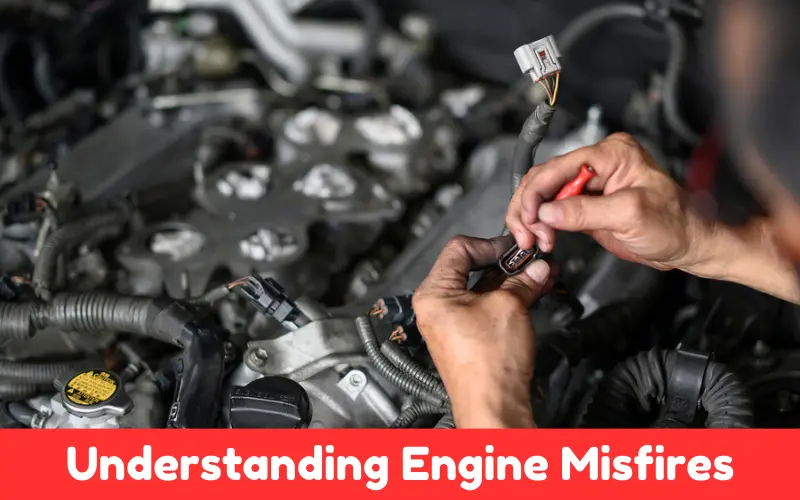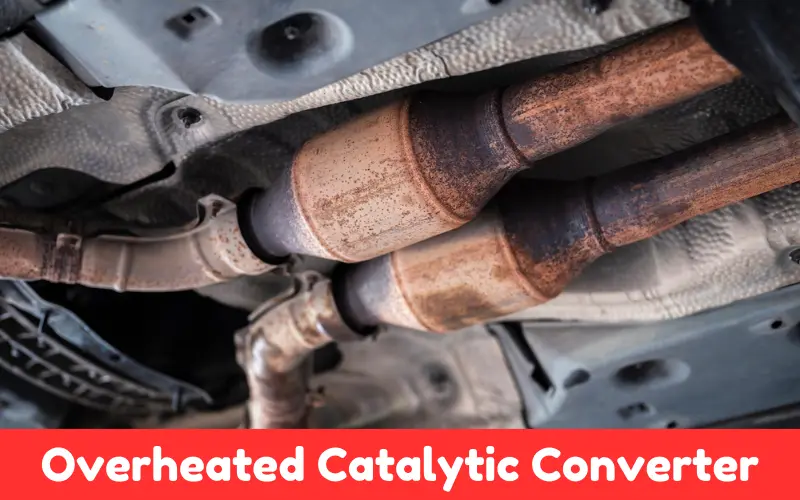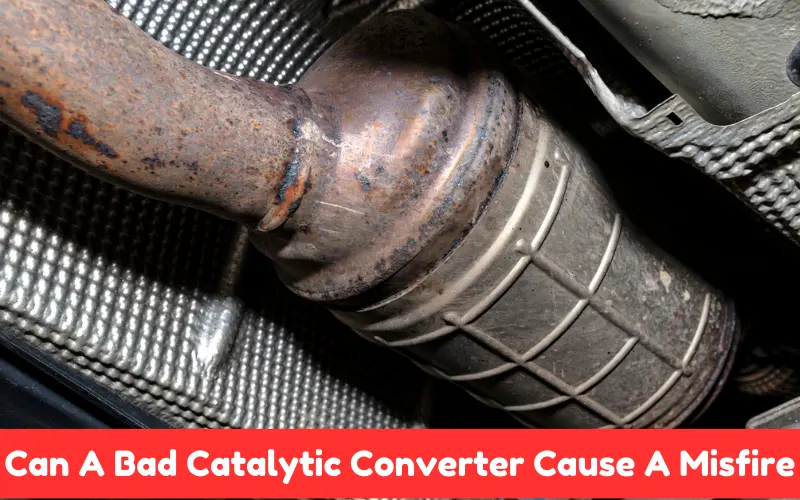Catalytic converters are important parts of your vehicle’s exhaust system, it reduces harmful emissions. If the catalytic converter goes bad, various symptoms can occur, including engine misfires.
In this blog post, we will discuss can a bad catalytic converter cause a misfire and how you can identify symptoms of the problem, diagnose the cause, and find solutions.
Article Summary
What is A Catalytic Converter?
A catalytic converter is an emission control system installed in internal combustion engine vehicles to convert toxic gases and pollutants found in exhaust gas to less toxic substances.
A catalytic converter typically contains a honeycomb structure filled with a catalyst consisting of platinum, palladium and rhodium, which accelerate the conversion of carbon monoxide, nitrogen oxides and hydrocarbons to carbon dioxide, nitrogen and water.
How Does A Catalytic Converter Affect Engine Performance?
An engine controls catalytic converter to reduce harmful emissions. So, if catalytic converters go bad then it affect engine performance. How a catalytic converter reduces engine performance is given below:
Proper Functioning
A properly functioning catalytic converter allows the engine to breathe and function smoothly and efficiently, eliminating back pressure in the exhaust so that exhaust gases are expelled properly.
Malfunctioning
When the catalytic converter fails, it can become plugged, restricted, or damaged. This can create more backpressure, and the engine could have difficulty expelling exhaust gases.
The outcome is usually reduced performance, poor fuel mileage, or even engine stumbles.
Understanding Engine Misfires
An engine misfire is a problem that arises when one or more of the engine’s cylinders are not igniting their air fuel mixture at the correct time.

Misfires can result in rough idling, hesitation, and decreased performance. Some of the causes of misfires include:
- Faulty spark plugs or ignition coils
- Fuel delivery issues
- Vacuum leaks
- Sensor malfunctions
- Exhaust system problems
Can A Bad Catalytic Converter Cause A Misfires
A failing or bad catalytic converter can cause misfires in several ways:
1. Increased Backpressure
Catalytic converters can become clogged or otherwise backpressure the exhaust flow, which can then affect the air fuel mixture going into the engine, causing power issues and misfires.
2. Overheated Catalytic Converter
An overheated catalytic converter that fails could send a lot of extra heat up toward the engine, where it can be re-radiated back to the engine.

That constant increase in heat can affect other parts of the engine, such as the ignition coils and the spark plugs, leading to misfires.
3. Contaminants and Debris
If the catalytic converter should become damaged internally and the catalyst brittle enough to break up, the pieces that do break off can lodge in the piping and either cause a restriction of a valve somewhere downstream or, even further upstream, get caught during a reboot and damage the turbo shaft seals.
Contaminants can further come into play on the oxygen sensors, which in turn will begin providing false readings that lead the computer to supply a fuel air mixture that later misfires.
4. Fuel Delivery Issues
A bad catalytic converter with a restricted exhaust flow can cause the ECM to over or under fuel the engine incorrectly and cause it to miss.
Symptoms of A Bad Catalytic Converter
Here’s how to tell if your catalytic converter is causing misfires in your engine:
Check Engine Light: If the Check Engine light is on, the catalytic converter is probably bad, and some emissions related codes that you can read yourself on the dashboard will appear.
Poor Acceleration: Reduced engine performance and sluggish acceleration can indicate a clogged catalytic converter.
Poor Acceleration: The tachometer speed at 1300 RPM could indicate a too high rear end ratio, which means you should consider a lower one.
Rotten Egg Smell: An exhaust odor that smells like rotten eggs is probably a failing catalytic converter.

Rattling Noise: Loose parts in the catalytic converter or damage in the manifold from the catalytic converter. It affected the exhaust system.
Excessive Heat: An unusually hot catalytic converter can cause the engine to overheat and misfire.
How To Fix A Bad Catalytic Converter
If you suspect that a faulty catalytic converter is causing your car to misfire, you should take the following steps as soon as possible:
- Diagnostic Check: Use a scanner to read the trouble codes provided by your car’s computer (known as an ECM or electronic control module). This can help identify problems associated with the catalytic converter and other components.
- Professional Inspection: Have your vehicle inspected by a certified mechanic. The mechanic can conduct diagnostic tests to see if your converter is functioning properly.
- Replacement: If the catalytic converter is damaged, which is usually the case replacement is required. It is not possible to continue driving with a bad catalytic converter. This will lead to further damage or a serious malfunction of your engine and associated components.
FAQs on Can A Bad Catalytic Converter Cause A Misfire
Can A Bad Catalytic Converter Cause A Rough Idle?
Yes, it very well might be. If the exhaust passage in a converter is severely clogged or otherwise restricted, the backpressure that builds up will lead to a change in the air fuel mixture that the engine is burning, which will cause the rough idle.
How Can I Tell If My Catalytic Converter is Causing Engine Misfires?
Signs that you may have catalytic conversion issues, including engine misfires, include a check engine light with the above listed trouble codes, poor engine acceleration, a rotten egg smell from the exhaust, excessive rattling from the exhaust, and heat coming from the exhaust.
Is It Safe To Drive with A Bad Catalytic Converter?
It is not a good idea to drive your car with a bad catalytic converter, as it can cause the engine to misfire, which will cause some loss of acceleration and result in damage to the engine, which means you may need to replace the engine at some point.
How Much Does It Cost To Replace A Catalytic Converter?
The cost of replacing a catalytic converter will vary depending on the make and model of the car you drive and the labor rates in your area. Overall, replacement costs for catalytic converter parts and labor will range from $500 to $2,500.
Can I Clean A Clogged Catalytic Converter Instead of Replacing It?
Yes, subject to the following: a clogged catalytic converter sometimes can be cleaned by using a catalytic converter cleaner, though such ‘flushes’ are usually a temporary measure. Further, if the converter is so damaged it is beyond repair or not functioning at all, then replacement of the converter is generally the better remedy.
Conclusion
Yes, a bad catalytic converter can cause the engine to misfire, which will affect drivability and eventually lead to internal damage by burning up vital parts. Don’t let it go unchecked.
Even a minor symptom of a malfunctioning catalytic converter is worth investigating and fixing. If you suspect a bad catalytic converter in your car, contact a mechanic for advice and evaluation.

